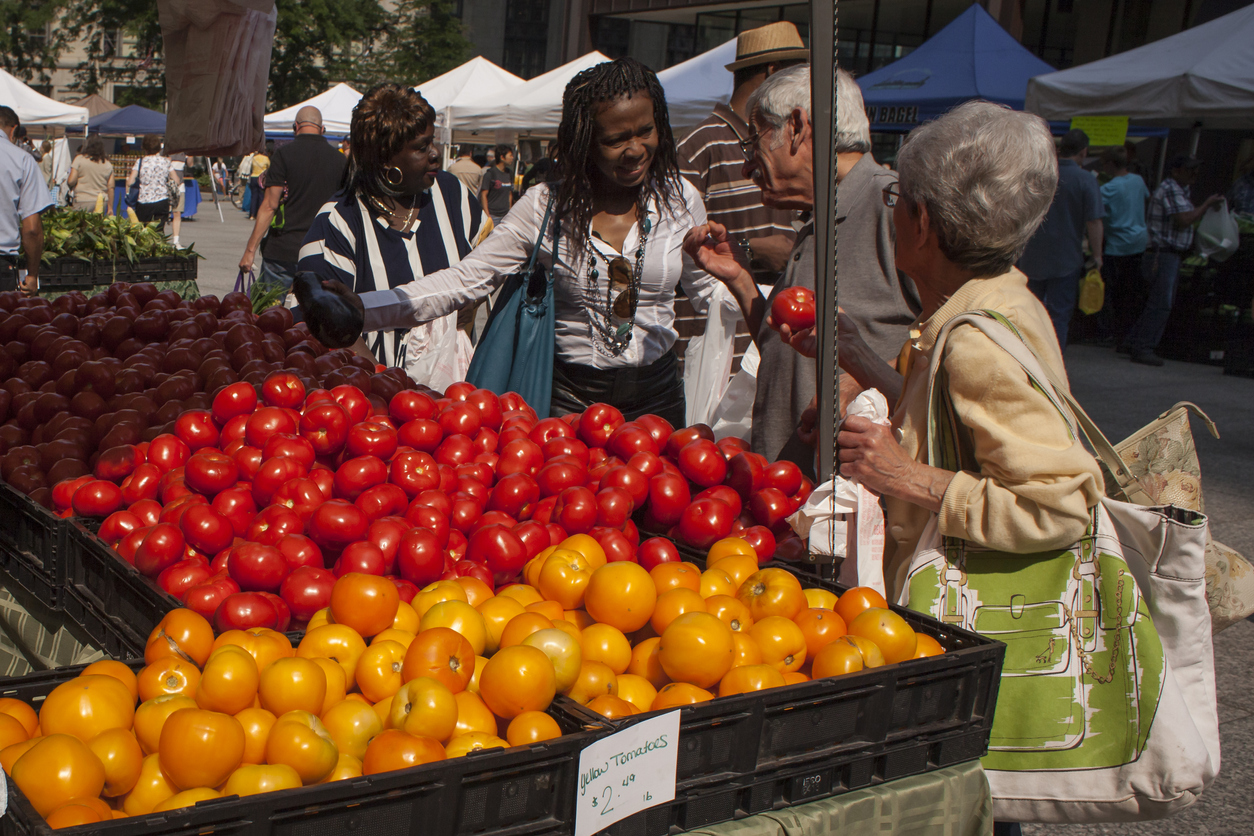Share On Social!
Farmers markets are thought to be great options for communities to support local farmers and buy healthy, organic food.
But what role do farmers markets have in addressing food justice and racial inequity?
Farmers markets should take an active role in addressing structures and policies that perpetuate inequities and discrimination, according to the Farmers Market Coalition, a nonprofit dedicated to supporting farmers markets and providing income opportunities for farmers.
That’s why Farmers Market Coalition created an anti-racist toolkit.
What the Anti-Racist Toolkit Has to Offer
The Farmers Market Coalition is teaming up with Sagdrina Jalal, senior director of partnerships and programs at the Center for Civic Innovation in Atlanta, Nedra Deadwyler, a public historian and founder of Civil Bikes in Atlanta, and Black food systems experts from around the country.
The anti-racist toolkit goes beyond equity statements and simple superficial solutions.
“In order for farmers markets to be radically transformed into the accessible, inclusive, and viable food outlets they want to be, they must do more than offer surface level solutions like discount programs for customers with low incomes and topical equity statements. Farmers market leaders must take steps towards changing their structures, policies, and ways of doing business to operate in ways that actively combat racial inequities and promote racial justice,” according to the coalition’s statement.

The toolkit will include resources for those in charge of markets so that they can recreate the structure.
“Experts will examine farmers markets at a high level, identifying the ways that policies and systems have contributed to make farmers markets predominately White spaces. They will also provide practical tools and resources for market operators to examine and adjust their internal structures and policies to be more anti-racist with multiple methods of delivery (checklists, videos, case studies, worksheets, etc),” according to the coalition’s statement.
The Farmers Market Coalition want this toolkit to help communities of color, but specifically the Black community in fighting food and racial injustice.
They hope that this toolkit can start the conversation.
“We recognize this toolkit as a starting point for market operators to take a long, hard look at the inequitable structures, systems, and policies that farmers markets have benefited from and begin to take action to reverse the damage this has caused the Black community specifically,” according to the coalition’s statement.
Food Access and Racial Justice
Access to food, especially healthy food options, is directly tied to racial justice and equity.
Low-income communities and communities of color, including Latinos, are more likely to suffer from food insecurity. Families with lower income may not be able to afford stocking up on supplies. Changes in food retail will increase the gap between these communities and the wealthy.
Food insecurity was an issue before the pandemic, but COVID-19 has worsened access to healthy options. In communities where COVID-19 has surged, people may have lost their jobs or be struggling with high medical costs. This economic strain on families leaves little time and money for healthy food and beverages.
Access to healthy food is important for communities to be healthy. People living in areas that lack access to healthy food retail are more likely to suffer from health disparities such as obesity, which can lead to cardiovascular disease and diabetes.
Farmers markets can help address food insecurity.
“Access to a local farmers market helps immigrant Latinas buy more fruits and veggies,” according to a Salud America! research review.
However, farmers markets should be equitable and accessible for all.
How Can We Help?
Everyone deserves access to healthy and fresh food. Farmers markets are a great way to buy healthy food and support local farmers in your community.
But farmers markets should also do their part in providing equitable access to food and strive to be different from existing structures that enable racial injustice.
You can download the Farmers Market Coalition’s anti-racist toolkit when available later this year.
Until then, another way to help fight for equity in your community is by downloading the Health Equity Report Card.
The report card allows you to see what access your community has to food, healthcare, education, and other resources. You can help advocate for your neighbors and present the Health Equity Report Card to your city’s leadership!
By The Numbers
3
Big Excuses
people use to justify discriminatory behavior



